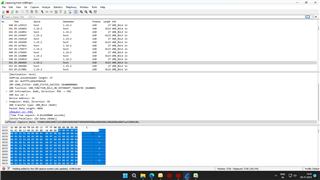Hi,
My requirement is to send 256bytes data at every 50 usec from interrupt of timer.
I'm using USB_DEV_SERIAL example code for transfer data from controller to PC application through USB.
but in PC application I observed some of the data it was missing, and data is not coming in single bunch.
if similar way I'm sending data only single time from background not from timer interrupt, I'm able to receive all data in correct format and single bunch as required.
Note: in both case execution time of TIMER ISR is 40 usec.
can you please us how to send data with TIMER ISR


